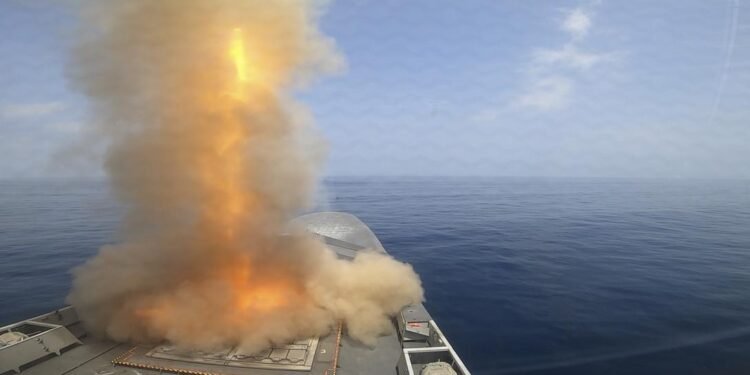
Since its setting up and operationalisation six months ago, the third European Union (EU) naval task force in African waters – Operation Aspides – has escorted 170 vessels through the Red Sea and taken out 19 Houthi drones and missiles.
These statistics were made known by EU Vice President Josep Borrell during a support call on Operation Aspides operational headquarters in Greece ahead of visiting strategically located Djibouti at the weekend.
The motivation behind Aspides (Greek for “shield”), he told staffers at the Larissa operational headquarters, was the increasing deterioration of the security situation in the Red Sea starting last October. “Houthis are launching increasingly sophisticated attacks, developing more capacity to attack commercial ships, threaten maritime security and international trade and putting regional peace and security at risk,” Borrell is reported as saying.
By way of explaining Aspides’ rationale, he pointed out: “Redirection of maritime traffic around the Cape of Good Hope adds from 10 to 14 days per journey. This means more costs; more costs mean higher prices, higher prices mean more inflation as well as Increased prices for shipped materials. The cost of a container from China to Europe has doubled”.
“The daily transit of ships through the Suez Canal is cut in half. It means a lot of money lost by Egypt and a lot of trouble for the world economy.
“The attacks have dramatic consequences for countries in the region and as always, the poorest are the most impacted.
“In Yemen, the flow of goods has been massively reduced. The Yemeni population is further deprived of lifesaving assistance and faces challenges due to rising costs of food and a deterioration of food security.
“The attacks are a direct attack on our interests – on the interests of the EU – to regional peace and stability and the lives of people in need,” Borrell said ahead of the African leg of his two-day visit.









